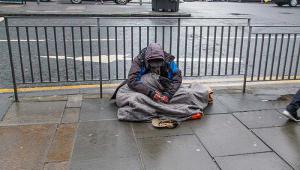By Tash Shifrin
Charities have called on politicians to ‘hang their heads in shame’ after official figures revealed that social services spending on elderly people fell last year.
The figures published by the NHS Information Centre on February 10 showed that gross expenditure by English social services departments increased by 3% in cash terms between 2006/07 and 2007/08, to a total of £20.7bn – leaving real-terms expenditure at around the same level.
Spending on services for children and families increased by 1% in real terms, and by 2% for adults with learning difficulties. But funding for over-65s fell by £148m – a 2% spending cut.
Figures adjusted to 2007/08 prices showed that the amount spent on services for older people rose from £8.88bn in 2005/06 to £8.92bn in 2006/07 but then fell back to £8.77bn last year.
Age Concern director general Gordon Lishman said: ‘Council leaders and ministers should hang their head in shame. It beggars belief that less is being spent on older people than a year ago. Even spending on home care has fallen, yet it is supposed to be the main plank of care and support policies.’
Elizabeth Feltoe, senior social care policy officer for Help the Aged, added: ‘It’s disgraceful that older people have once again been the victim of spending cuts.’
Anne McDonald, community wellbeing programme director at the Local Government Association, said councils did not want to deny people services but had to make ‘hard decisions when there is a limited budget’.
She added: ‘Spending on home care has risen while money going into residential care has gone down – that ties in with councils following people’s preferred option, to stay independent in their own homes.’
Home care services were also cheaper than residential care, she said. ‘A slight fall in spend cannot be taken as evidence that fewer people are being cared for or that standards have gone down.’
The figures also showed that the use of direct payments, allowing recipients to choose and organise their own care services, remained marginal, accounting for just 2% of overall social services expenditure at £452m.



















